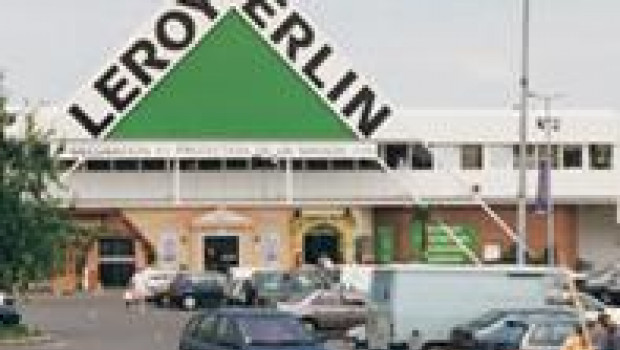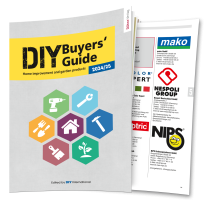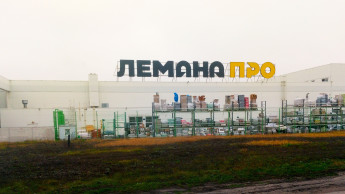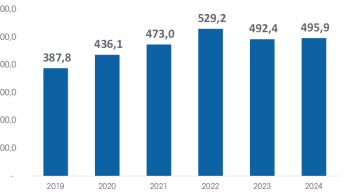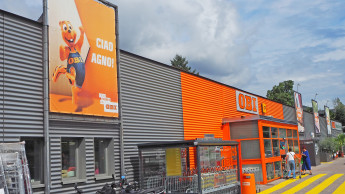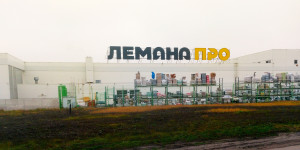The Spanish DIY market has seen rapid development over the last few years. The number of DIY stores is increasing steadily, and discount concepts are becoming more interesting as well
Purely DIY sales, excluding the trade business of the traditional hardware shops, come to a total of € 3.2 bn. The biggest market share (45 per cent) is claimed by the approx. 3 000 hardware shops that are organised in cooperatives, 28 per cent goes to DIY stores and 27 per cent to hypermarkets and department stores.
Worth highlighting among the last-mentioned is El Corte Inglés, a company that achieves the fourth-largest DIY sales in Spain (€ 210 mio). The department store operator has also announced its intention of launching its first independent DIY stores under the name of Bricor in 2006. The first new openings are scheduled for Madrid, Valencia, Barcelona and Seville.
The Leroy Merlin group from France with its Leroy Merlin and Aki sales channels is the leader in the Spanish marketplace. The group’s biggest DIY store in Spain is in the Nueva Condomina complex at Murcia, which was inaugurated in spring 2005. The outlet is 13 500 m² in size and was built at a cost of € 25 mio.
Leroy Merlin is the number one DIY store in Spain.
French DIY retail groups have an important role to play in Spain, four of them being actively involved here. Alongside Leroy Merlin with Aki are Mr. Bricolage, Cofac with the Bricofac sales channel, and Bricorama. Brico Dépôt really belongs to this group as well, even though its parent company Kingfisher comes from the United Kingdom. Only one other retailer from abroad is represented in Spain. That is Bauhaus from Germany, which opened its fourth Spanish outlet, a store 8 600 m² in size, at Málaga in June 2005.
The French DIY group Bricorama is only active at one location so far, which they acquired from Aki. However, Bricorama intends to expand and add further outlets in Spain, providing the experiment with the medium-sized format proves successful.
Brico Dépôt, Kingfisher’s Spanish offshoot that was still known as Brico Stock until just a few months ago, is developing most successfully. Its total number of outlets has gone up to eight from the time of its launch in autumn 2003 till November 2005.
Perhaps it was this overall picture of growth that led Spain’s market leader, Leroy Merlin, to reach a decision to launch a discount format of its own next year. The group already has experience in this field in France. There the discount line is called Bricoman, which is however taking its time to get established.
The Spanish buying cooperative Brico Group has extended its activities beyond the national boundaries. In January 2004 the Portuguese DIY company Mestre Maco, which now has 19 outlets and a combined retail area of 55 000 m², became a member of Brico Group, which numbered 47 outlets in Spain at the end of June 2005.
Nireo Corporación, a grouping of Spanish hardware shops, last year developed a new DIY retail channel called Àtrida (2 000 – 2 500 m²), which was launched at Les Franqueses in June 2004 with a 1 950 m² store. Another opening is scheduled for November 2005.
The Átrida sales channel has been in existence since autumn 2004.
The Spanish DIY market will continue to expand, since the number of consumers taking to DIY from economic considerations is on the rise in Spain as elsewhere. However, in comparison with their neighbours to the north, the Spanish tend to take an active part mainly when it comes to indoor projects, e.g. painting, fixing or repairing, since most of them live in apartments. People do not as a rule have a garage or other room for carrying out DIY or storing large tools.
So far the skills and know-how involved in doing-it-yourself are not yet well developed or widely spread in Spain. “Which is why it is all the more important that consumers should be provided with the necessary knowledge by means of in-store displays, informative packaging and product descriptions, and TV shows as well,” says Vincente Jáuregui with total conviction.
The ADFB trade association (Asociación de Distribuidores de Ferreteria y Bricolage) has announced an interesting study of the DIY market in Spain. Although data collection is still not complete, publication of the market survey is expected in early 2006, according to the association’s director Francisco López.
Spain’s DIY retail groups(download .pdf-file)
Top Ten supermarkets and hypermarkets by DIY sales(download .pdf-file)
Top Ten traditional hardware by DIY turnover(download .pdf-file)
Gross sales of DIY stores(download .pdf-file)
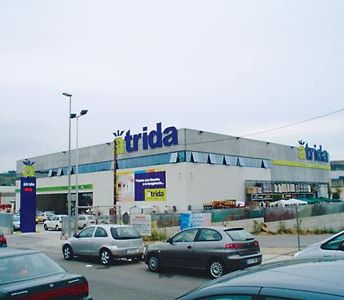

 Menü
Menü




